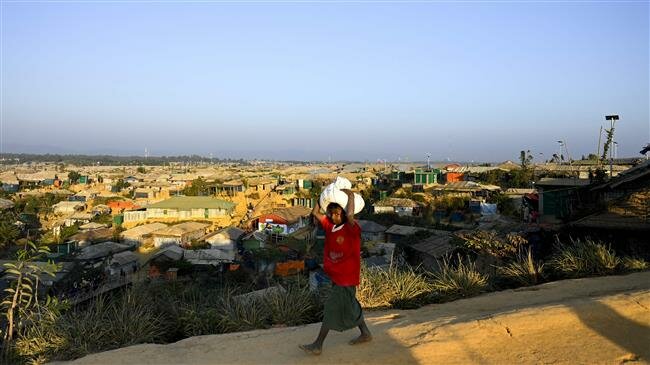UN urges world to end support for Myanmar’s military
The United Nations (UN)’s fact-finding mission on Myanmar has called on all countries to cut financial and other ties with the country’s military over genocide targeting minority Rohingya Muslims.

The Rohingya Muslims in Myanmar have faced horrific violence since 2012. In 2017-18, Rakhine State in particular was the scene of an organized crackdown on the Muslims by the country’s military and Buddhist mobs. Thousands of Muslims were killed in that crackdown and some 800,000 Rohingya fled to neighboring Bangladesh, where they currently live in camps in dire conditions. The UN has called that campaign “genocide.”
On Tuesday, the UN’s Independent International Fact-Finding Mission on Myanmar reported an absence of progress to resolve the Rohingya crisis.
“The situation is at a total standstill,” Marzuki Darusman, the chairman of the mission, said Tuesday.
The panel said it was still receiving reports of human rights abuses in Rakhine State as well as in Chin.
Australian human rights lawyer and panel member Christopher Sidoti said, “Due to the gravity of the past and continuing violations, attention must be given to the political, economic and financial ties of the Myanmar military, to identify who and what should be targeted.”
The call aims to cut off the money supply in a bid to mount the pressure on the military and potentially reduce the violence against the Muslims, Sidoti added.
The European Union (EU) on April 29 extended sanctions, including a weapons embargo, against Myanmar for one year over the same matter.

EU extends Myanmar arms sanctions over RohingyaThe European Union extends sanctions, including a weapons ban, against Myanmar over the Myanmarese military’s deadly crackdown on minority Muslims in the country.
Last year, the UN fact-finding mission said the campaign against the Rohingya was orchestrated with “genocidal intent.” It urged charging the Myanmarese army chief and five other generals with the “gravest crimes under international law.”
The International Criminal Court (ICC) has already opened a preliminary examination of the violence.
Myanmar’s de facto leader Aung San Suu Kyi rejected the fact-finding mission when it was established by the UN’s rights council in March 2017.
Military spokesman Major General Tun Tun Nyi dismissed the mission’s report as “interference.”
“Our country is an independent country, so we don’t accept our matters being interfered with,” he told Reuters by telephone.







